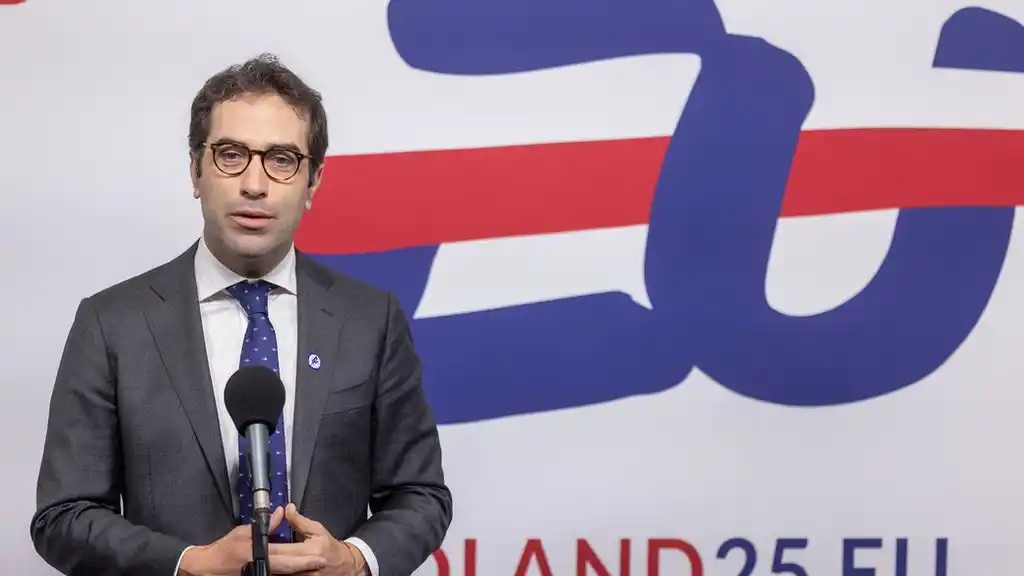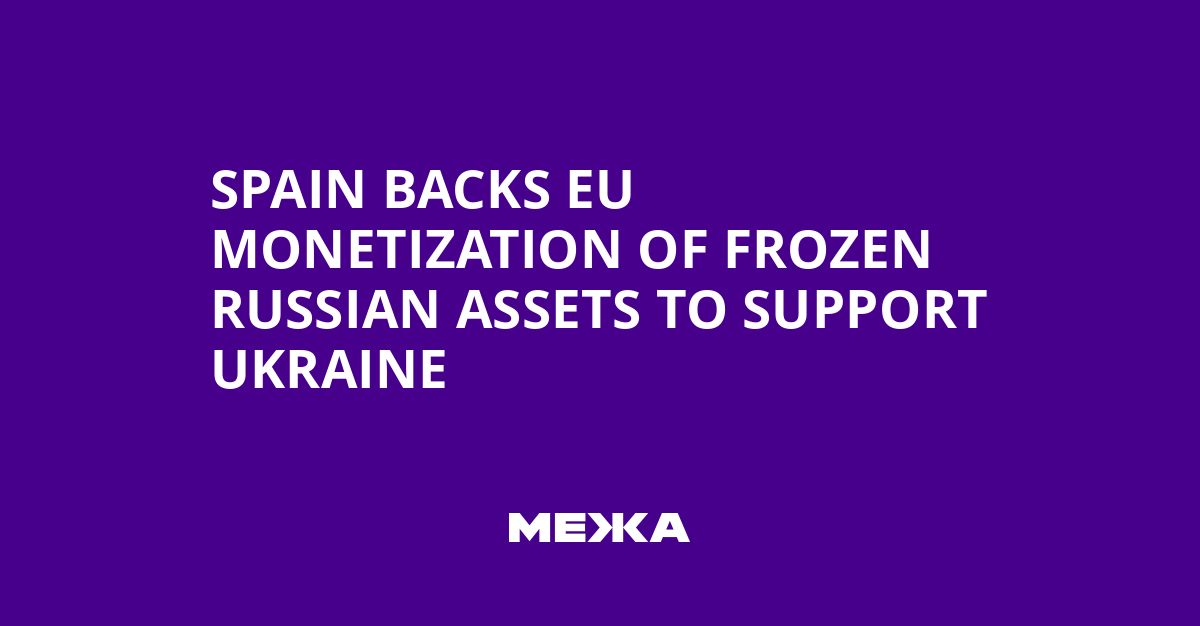
Spain’s Minister of Economy, Trade and Business, Carlos Kuerpo Caballero, delivers a speech before the start of the informal ECOFIN meeting of EU economy and finance ministers and heads of central banks in Warsaw, Poland, on 11 April 2025. Getty Images/WOJTEK RADWANSKI/AFP
On Friday, September 19, 2025, Spain’s Minister of Economy Carlos Cuervo stated that his government supports the European Commission’s efforts to monetize frozen Russian assets for Ukraine. The statement highlights a push to accelerate funding and to explore new mechanisms for using the assets.
“We, Spain, call for the maximum possible increase in funding for Ukraine. We call for creative ways to use these frozen assets.”
– Carlos Cuervo
Cuervo also stressed Spain’s role as one of the EU’s largest importers of Russian LNG and the need to reduce dependence on such supplies through diversification of sources, including through partnering with the United States.
Overall, the global context demonstrates the scale and complexity of using frozen assets: the total value of the Bank of Russia’s assets is about €280 billion, most of which is concentrated in the EU. Belgian Euroclear handles significant volumes, and in 2023 the company earned about €4.4 billion from such assets.
In July 2024, G7 leaders and the EU agreed to use the interest from frozen Russian assets to finance Ukraine to the tune of $50 billion. The United States pressed for guarantees that the loan could be fully repaid with EU assets, and also insisted on not unfreezing assets in the absence of appropriate guarantees. Also in 2024, G7 leaders supported a scheme to lend Ukraine $50 billion funded by asset profits. In December 2024, the United States announced additional loans, and the EU proposed corresponding loan mechanisms, including some up to $35 billion, while the United Kingdom joined the process.
In summary, Spain’s position underscores the importance of close coordination between the EU and international partners to support Ukraine and to use financial instruments tied to sanctions policy prudently.
Impact on Ukraine’s Financing and Sanctions Policy
Spain’s role in the context of asset monetization and support for Ukraine underscores the EU’s strategic orientation toward jointly financing crisis needs and adherence to sanctions rules. Overall, this is part of a broader approach that envisages using revenues from frozen Russian assets to ensure stable streams of assistance to Kyiv and to modernize Ukraine’s economy.
